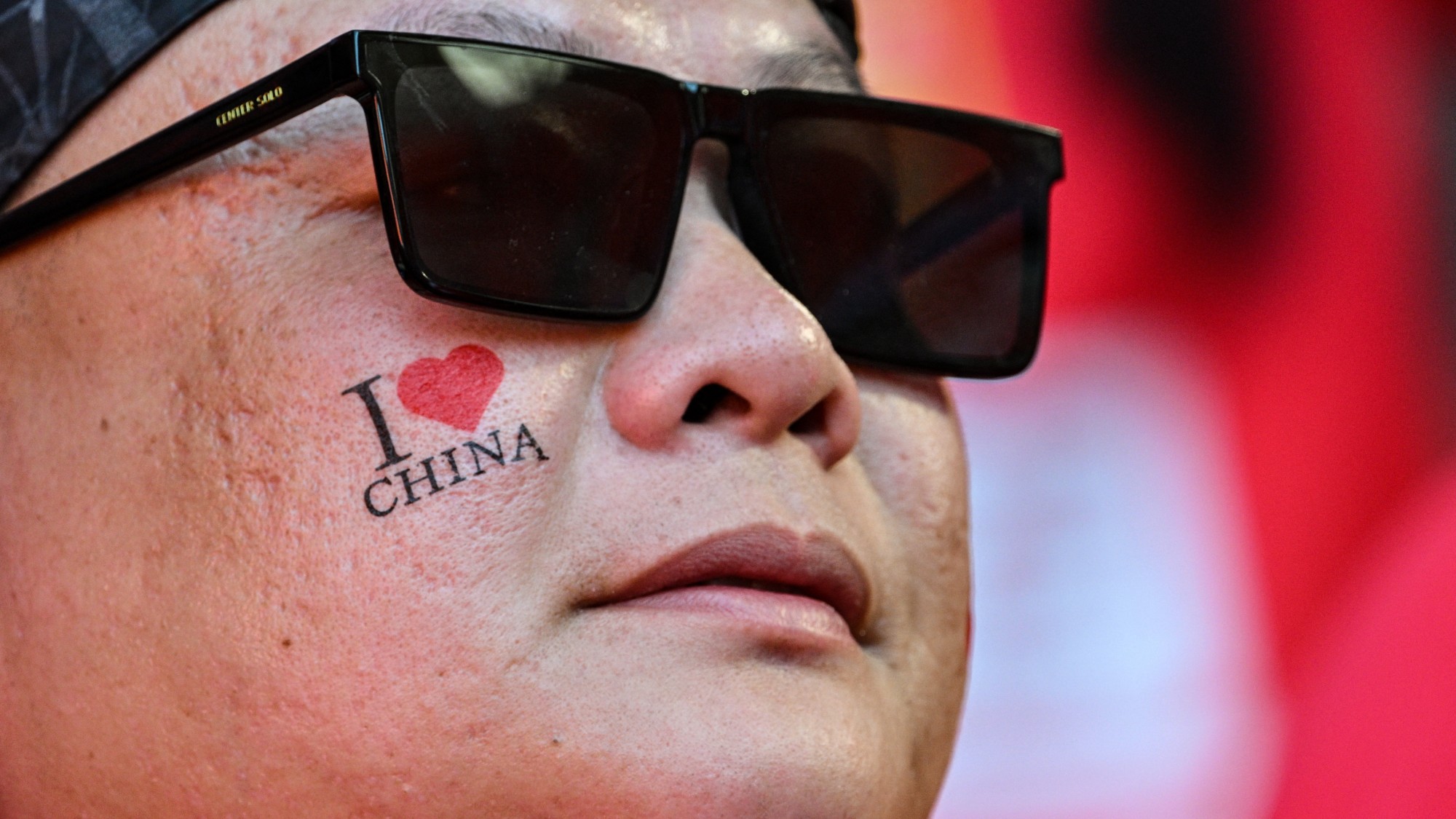China's football crisis: what's happened to Xi's XI?
String of defeats and finishing bottom of World Cup qualifying group comes a decade after Xi Jinping launched a football crusade

A free daily email with the biggest news stories of the day – and the best features from TheWeek.com
You are now subscribed
Your newsletter sign-up was successful
China's miserable World Cup qualifying campaign has led to calls for the men’s football team to be disbanded and angry questions over why a country of 1.4 billion people could not find 11 players capable of winning a match.
Ten years after Xi Jinping launched a multibillion-dollar crusade to fulfil his three wishes – for China to qualify for the World Cup, host it and win it – those ambitions seem further away than ever.
'Football-mad man of the people'
In 2015, President Xi said he wanted China's national men's team to become "one of the best in the world" and the Chinese government launched a project to make the country a "world football superpower" by 2050.
The Week
Escape your echo chamber. Get the facts behind the news, plus analysis from multiple perspectives.

Sign up for The Week's Free Newsletters
From our morning news briefing to a weekly Good News Newsletter, get the best of The Week delivered directly to your inbox.
From our morning news briefing to a weekly Good News Newsletter, get the best of The Week delivered directly to your inbox.
The plan was "closely linked to the burgeoning cult" around Xi, who was presented in state media as a "football-mad man of the people", seen "kicking balls around", said Ian Williams in The Spectator.
When Xi launched the programme, China were 81st in the Fifa world rankings but now they sit 90th – "wedged between New Zealand and the Caribbean island of Curacao", said the BBC.
The lowest point came last September when China were thrashed 7-0 by Japan in Saitama, which was close to a record defeat. The state-controlled Global Times said the performance was "shameful", said Williams, "while the Shanghai-based Oriental Sports Daily called it ‘disastrous’".
It followed 12 months of dispiriting defeats, including losses to Oman, Uzbekistan and Hong Kong. This week, Australia beat China 2-0 in Hangzhou, confirming their lowly place at the bottom of their World Cup qualifying group.
A free daily email with the biggest news stories of the day – and the best features from TheWeek.com
Despite the results on the field, some of the president's aims have been "taking shape". He wanted to get millions of young people playing the sport regularly and China's community football projects "have indeed been hugely upscaled", with pitches "now accessible all over the country".
Creativity not perfection
The reasons for the national team's failures are "pretty clear" and "they tell you a lot about how the country is run", Rowan Simons, author of "Bamboo Goalposts: One Man's Quest to Teach the People's Republic of China to Love Football", told the BBC.
State interference in football authorities is against Fifa's rules, but China's one-party state imposes decisions from the top and Chinese football is dominated by political appointments.
David Sproer, who worked as youth coach in the country, said Chinese children are "educated and socialised a little differently from European kids" – they're taught that "there is always a right and a wrong answer".
But "you have to be a little bit more versatile in football" than in the sports that China is successful in, such as diving. "It's not about perfection" in football, "it's also about creativity".
The "authoritarianism" of China, said Williams in The Spectator, seems "almost guaranteed to destroy" the "creativity and innovation" required in the "open and free-flowing" game of "countless permutations". Football relies on the brain "as much as, if not more than, physique".
Another problem is the "rampant corruption" that's "plaguing China's top football body", wrote Edi Obiakpani-Reid on Sinobabble. Match-fixing and bribery are "rampant", and the "culprits are often those trusted as custodians of the sport".
Chas Newkey-Burden has been part of The Week Digital team for more than a decade and a journalist for 25 years, starting out on the irreverent football weekly 90 Minutes, before moving to lifestyle magazines Loaded and Attitude. He was a columnist for The Big Issue and landed a world exclusive with David Beckham that became the weekly magazine’s bestselling issue. He now writes regularly for The Guardian, The Telegraph, The Independent, Metro, FourFourTwo and the i new site. He is also the author of a number of non-fiction books.